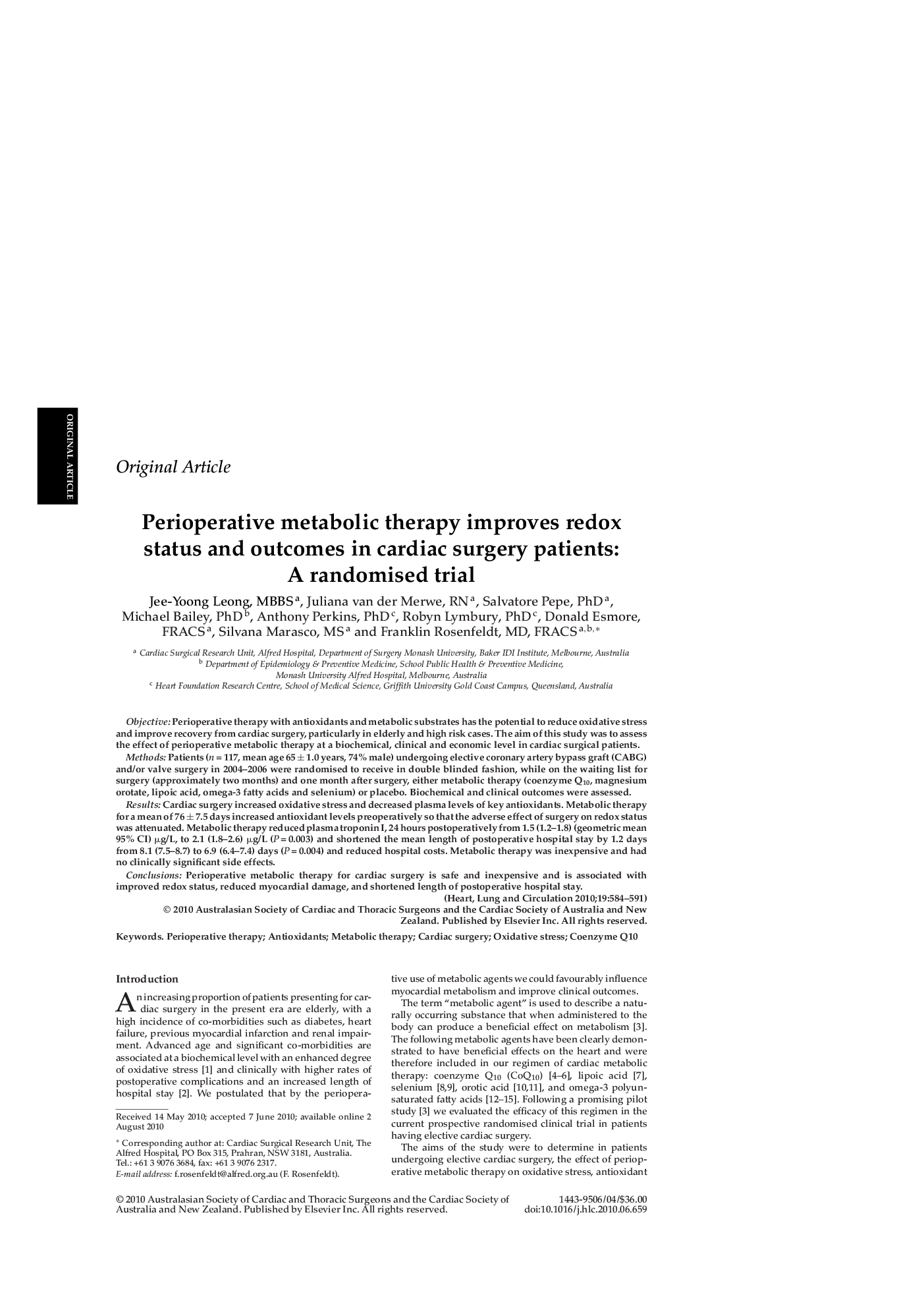| Article ID | Journal | Published Year | Pages | File Type |
|---|---|---|---|---|
| 2919953 | Heart, Lung and Circulation | 2010 | 8 Pages |
ObjectivePerioperative therapy with antioxidants and metabolic substrates has the potential to reduce oxidative stress and improve recovery from cardiac surgery, particularly in elderly and high risk cases. The aim of this study was to assess the effect of perioperative metabolic therapy at a biochemical, clinical and economic level in cardiac surgical patients.MethodsPatients (n = 117, mean age 65 ± 1.0 years, 74% male) undergoing elective coronary artery bypass graft (CABG) and/or valve surgery in 2004–2006 were randomised to receive in double blinded fashion, while on the waiting list for surgery (approximately two months) and one month after surgery, either metabolic therapy (coenzyme Q10, magnesium orotate, lipoic acid, omega-3 fatty acids and selenium) or placebo. Biochemical and clinical outcomes were assessed.ResultsCardiac surgery increased oxidative stress and decreased plasma levels of key antioxidants. Metabolic therapy for a mean of 76 ± 7.5 days increased antioxidant levels preoperatively so that the adverse effect of surgery on redox status was attenuated. Metabolic therapy reduced plasma troponin I, 24 hours postoperatively from 1.5 (1.2–1.8) (geometric mean 95% CI) μg/L, to 2.1 (1.8–2.6) μg/L (P = 0.003) and shortened the mean length of postoperative hospital stay by 1.2 days from 8.1 (7.5–8.7) to 6.9 (6.4–7.4) days (P = 0.004) and reduced hospital costs. Metabolic therapy was inexpensive and had no clinically significant side effects.ConclusionsPerioperative metabolic therapy for cardiac surgery is safe and inexpensive and is associated with improved redox status, reduced myocardial damage, and shortened length of postoperative hospital stay.
